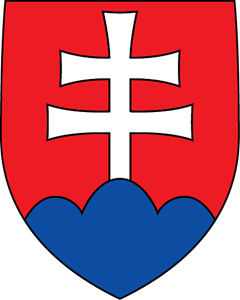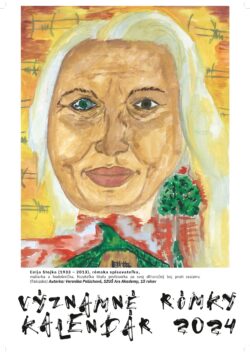
Vydali sme ďalší kalendár
02. 01. 2024
Composer, violinist, singer, dancer, painter, writer, jeweler, but also activist, scientist, chemist, doctor, translator, teacher or professor. Behind each of them is a different powerful story, but they have something in common. They are all Roma. The portraits of these smart and courageous women are part of a wall calendar created as part of the Gender Equality for Roma communities project.
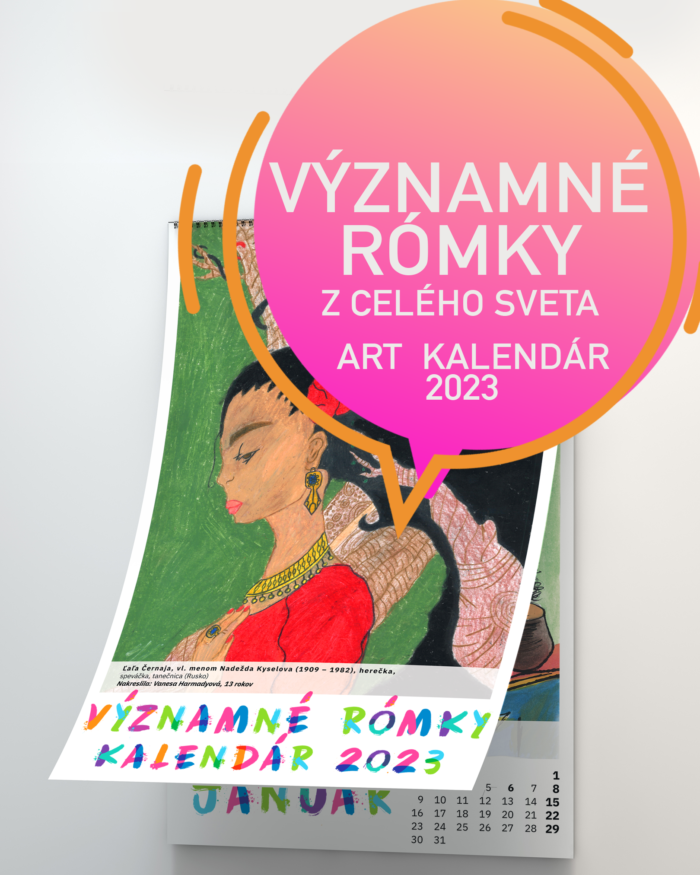
Calendar with the title Roma women you (don’t) know
People in Need, in cooperation with the organizations EsFem and The Equalization of Chances Association, is trying to raise awareness of this topic and strengthen the position of women in marginalized Roma communities through a project called Gender Equality for Roma Communities. It does this not only with the help of educational activities and campaigns, but also in an artistic form through a calendar or a card game.
Women from excluded Roma communities are at a disadvantage, because they do not know what gender equality is and that they could want something in this area. We try to show them that they realize what possibilities they have, and that they could live a little differently than their usual stereotypes tell them.
Edita Kovářová from the Equalization of Chances Association
The project helps to increase the visibility of Roma women, develop female friendships and remove stereotypes about them in society. It includes workshops at schools and community centers, but also something a little more „tangible“, such as a colorful wall calendar with portraits and stories of important Roma women, Roma women you (don’t) know, or a quartet card game.
Under the guidance of teacher Zuzana Jedináková, children from the elementary art school Ars Academy in Bánovce nad Bebravou illustrated portraits of important and successful Roma women for the calendar, which convinced them that these women also have their place in society. The accompanying event was the presentation of individual women from the calendar in community centers so that they could be an inspiration for women from marginalized Roma communities. A traveling exhibition of children’s works combined with a discussion will be offered to schools and libraries that would like to contribute to strengthening the position of Roma women in society.
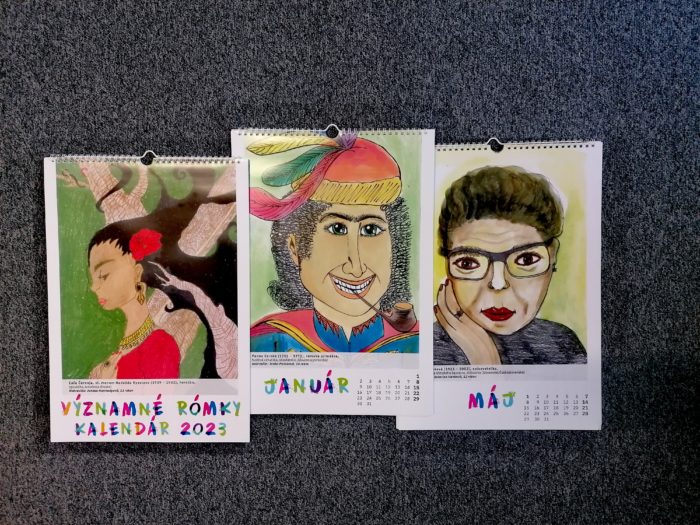
During lectures and discussions in individual community centers, when local women listened with interest to the engaging stories of important Roma women from the expert from the EsFem association, Monika Bosa, they also showed an interest in artistic creation, and their portraits of other interesting women may appear in the calendars for 2024 and 2025. In addition, they were interested, and perhaps even inspired, by many strong stories of women who prove that despite many times more difficult living conditions, they could become and did become successful in their fields.
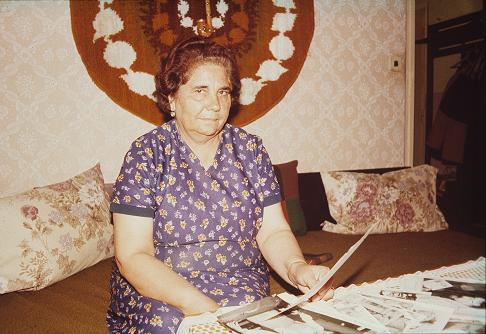
The story of the first Roma writer, Elena Lacková, tells how a native of the settlement in Velky Šariš became the first Roma woman from Slovakia and the Czech Republic to graduate from Prague’s Charles University, although she only started studying at the age of 44. When she finished her studies just before fifty, she already had nine grandchildren. She started writing as a 14-year-old girl and during her fruitful life she wrote several books, theater and radio plays, which were translated into several languages and won many awards, among them Rad Ľudovít Štúr. She presented the theme of the suffering of the Roma during the Second World War in her texts long before the Roma Holocaust was publicly discussed. She participated in the organization of the first Roma festivals and cultural events, founded the Roma theater.
Despite her large family, Elena Lacková was able to find time for writing, which is close to her heart, despite her advanced age, she was able to graduate and can certainly be a role model for many, not only Roma women, that one can really achieve a lot in life if one has the desire, will and determination.
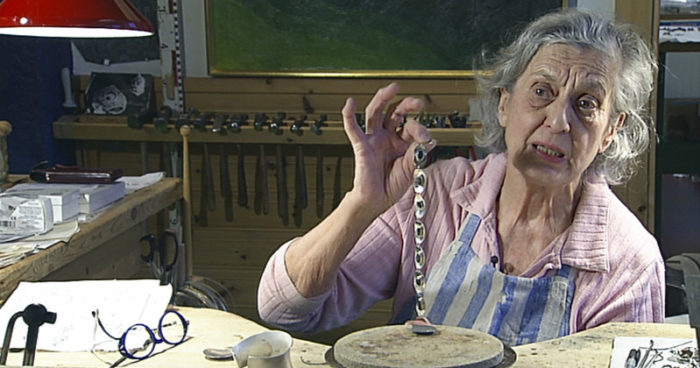
The women from the community centers were also interested in the story of the most famous Roma jewelry maker, Rosa Taikon, who was born in Sweden and learned the craft as an adult. Despite her incomplete education, she established herself in the art world and her jewelry could be seen by people in many European countries at more than 400 exhibitions.
What is interesting about her story is that she only got into silversmithing at the age of 35, while in the case of her nomadic Taikon tribe, this craft was passed down exclusively from father to son. Since her brother died tragically and there was no male descendant in the family to take over the craft, Rosa took it on. At first she attended an evening course, later she applied to the prestigious art university in Stockholm, which she successfully graduated from and received a state award for artistic contribution for her work.
Another nice proof that Roma women are often artistically gifted and if they develop their talent, they can make a name for themselves on the art scene.
In addition to the calendar, the quartet card game called Women without Borders was created as part of the project. In an entertaining form, it presents 32 female personalities who stood up for freedom and equality for their nation and at the same time discovered that their rights were denied to them just because they were women. This was the reason why these national awakening women began formulating the demand for equality for themselves as well. The first wave of the feminist movement in our Central European environment is therefore closely related to the national revival.
Women – regardless of the borders of countries or nations – demanded freedom and equality for all, for themselves and for men.
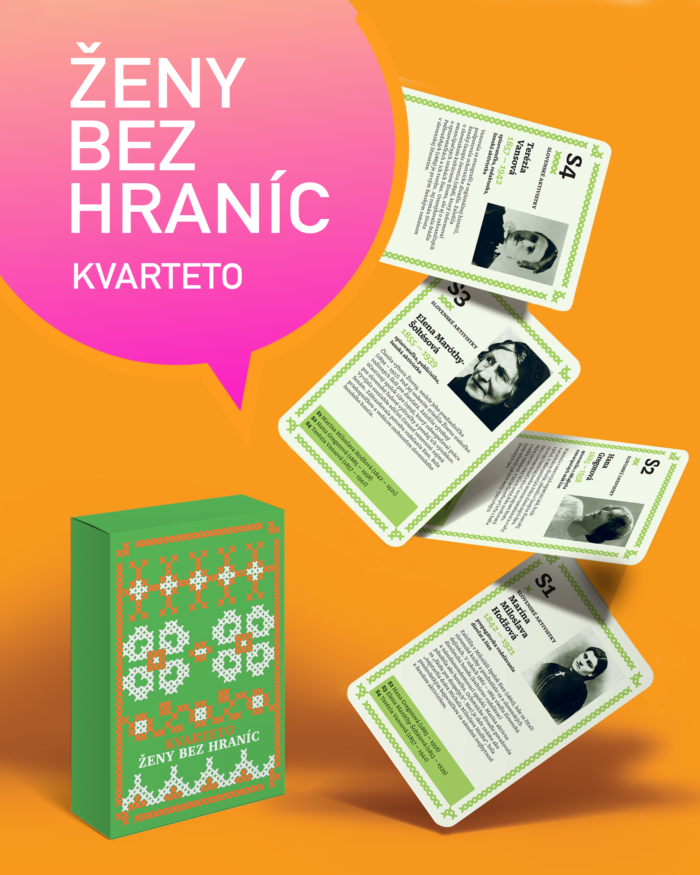
The project Gender equality for Roma communities, which was supported by Norwegian grants and the Slovak state budget, is implemented together with EsFem and The Equalization of Chances Association.

